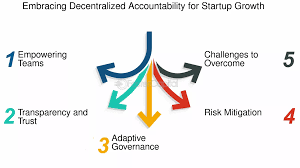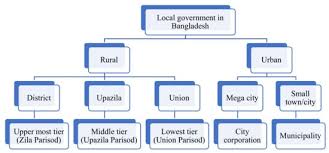Senior government officials were present, including Tofail Ahmed, the Chair of the newly established Local Government Reform Commission, along with four of its members. The Additional Secretary of the Local Government Division, representatives from civil society, think tanks, local government, and the media also joined. The discussions were thought-provoking and it became clear that decentralization isn’t just a policy buzzword, but it’s an urgent necessity to address the unique socio-economic challenges our country faces. Here my reflections:
Why Decentralization of Local Government is Important
Bangladesh’s challenges of poverty, vulnerability, and marginalization are highly localized, varying from one region to another. Addressing these context-specific issues requires tailored solutions that centralized systems often struggle to provide. Decentralized governance can empower local governments to devise localized plans, ensuring sustainable and inclusive outcomes.
Strengthening local government also has profound implications for democracy. A decentralized system fosters grassroots participation, enabling people to take ownership of decision-making processes. This promotes transparency, accountability, and inclusivity, creating a governance system that truly reflects the aspirations of local communities.
Moreover, achieving the Sustainable Development Goals (SDGs) hinges on localization. Local governments are best positioned to drive this process by identifying community needs, mobilizing resources, and implementing SDG-related initiatives. With 65% of targets requiring local action, their role is evident in addressing priorities like poverty and sanitation, supported by 40 government-approved localized SDG indicators.
Without empowered and effective local governance, the realization of SDGs will remain an elusive goal for Bangladesh.
Key Challenges in the Current System
Despite its potential, Bangladesh’s local government system faces structural and operational limitations. The power dynamics between local and central governments often restrict autonomy. For instance, obtaining development funds from the central government is complex, bureaucratic, and biased towards large-scale infrastructure projects, which often overlook the needs of the most marginalized populations. According to a World Bank study, local government institutions (LGIs) in Bangladesh face significant challenges due to centralized control and complex funding processes. The study highlights that LGIs have minimal funding discretion, limiting their responsiveness to local community needs.
The imbalance of power within local government institutions also poses a significant barrier. Union Parishads and Upazila Parishads, for example, often centralize authority in the hands of chairpersons, sidelining other representatives, including women. This undermines the principles of democratic governance and inclusivity.
Additionally, local governments lack the financial sustainability needed to operate independently. Heavy reliance on central funding and inadequate resource mobilization at the local level prevent effective service delivery.
Rapid urbanization has further highlighted gaps in urban local governance. As of 2023, approximately 40.47% of Bangladesh’s population resides in urban areas, reflecting a consistent upward trend in urbanization. Projections indicate that by 2050, this figure will rise to over 56%, underscoring the need for sustainable urban planning to accommodate the growing urban populace. In contrast, social protection systems in urban areas remain weak, often excluding the poor who drive much of the economy in cities. Similarly, local governments have limited capacity to address emerging challenges, such as climate-induced vulnerabilities, due to the absence of robust social registries and shock-responsive systems.
Key Recommendations for Reform from the dialogue
To address these challenges, we must prioritize reforms aimed at decentralizing and empowering local governments. Below are eight actionable recommendations discussed during the event:
- Fostering Financial Independence
- Redefining Roles and Responsibilities
- Ensuring Democratic Balance
- Simplifying Access to Development Funds
- Leveraging Technology for Governance
- Building Resilience Through Social Registries
- Revamping Urban Governance
- Investing in Capacity Building
Decentralizing and empowering local governments is not just a governance reform—it is a critical enabler for Bangladesh’s sustainable development. By addressing the structural and operational barriers in the current system, local governments can emerge as the driving force behind grassroots democracy, inclusive development, and the realization of the SDGs.
The event was jointly organized by UNDP’s Strengthening Institutions, Policies, and Services (SIPS) project and Prothom Alo, with support from the Swiss Agency for Development and Cooperation (SDC) and research input from the Centre on Budget and Policy (CBP) at the University of Dhaka. SIPS aims to build inclusive, accountable institutions to promote peaceful, just societies and drive sustainable development in Bangladesh through broad stakeholder engagement I thank the government of Switzerland for their generous support.







